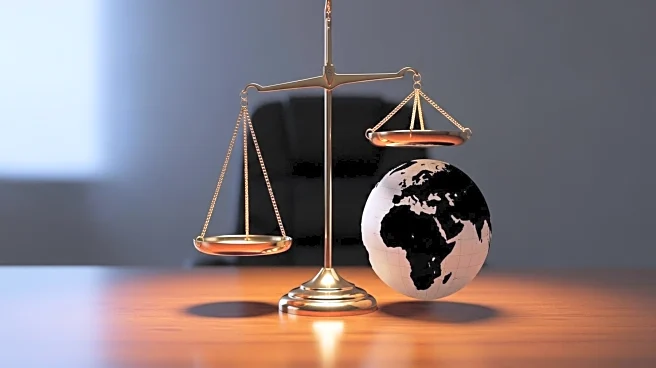What's Happening?
A lawyer representing 11 West African men deported by the United States to Ghana has raised concerns about their safety and legal rights. The men were deported despite fears of torture, persecution, or inhumane treatment in their home countries. The lawyer, Oliver Barker-Vormawor, stated that the deportations occurred even as a legal case was filed to prevent them, rendering the lawsuit irrelevant. The deportees were reportedly held in poor conditions in a military camp before being sent to various countries, including Togo and Ghana. The case highlights ongoing issues with the U.S. deportation process under President Trump's administration, which has faced criticism for sending migrants to third countries without adequate legal protections.
Why It's Important?
The deportation of these individuals raises significant human rights concerns, particularly regarding the treatment and legal rights of migrants under U.S. policy. The situation underscores the broader implications of President Trump's immigration policies, which have been criticized for potentially violating international human rights standards. The deportations could impact U.S. relations with affected countries and international organizations advocating for migrant rights. The case also highlights the challenges faced by legal representatives in protecting vulnerable individuals from deportation to unsafe environments.
What's Next?
The legal team representing the deported individuals may continue to seek justice and accountability for the alleged violations of their rights. International human rights organizations could increase pressure on the U.S. government to review and amend its deportation practices. The situation may prompt further scrutiny and potential legal challenges against U.S. immigration policies, particularly those involving deportations to third countries.
Beyond the Headlines
The deportations reflect broader ethical and legal dilemmas in U.S. immigration policy, particularly concerning the balance between national security and human rights. The case may contribute to ongoing debates about the moral responsibilities of nations in handling asylum seekers and migrants, especially those facing persecution.










